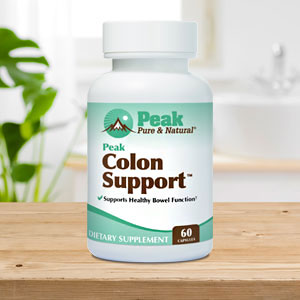Get Easy Health Digest™ in your inbox and don’t miss a thing when you subscribe today. Plus, get the free bonus report, Mother Nature’s Tips, Tricks and Remedies for Cholesterol, Blood Pressure & Blood Sugar as my way of saying welcome to the community!
The green fruit that keeps deep belly fat away

Did you know that there are two types of fat on your body — one that you see each time you look in the mirror and one that is deeper and more dangerous?
That’s right, the fat that sits right under the surface of your skin, known as subcutaneous fat is the one responsible for the bulge you may be battling on your hips and thighs.
But visceral fat, which lies deep beneath your skin, wrapping around your organs, is the type of fat you should be worried about.
Not only is it harder to get rid of with traditional dieting, but high levels of visceral body fat skyrocket your risk of diseases like diabetes and dramatically raise your risk of high cholesterol, high blood pressure, heart disease and stroke.
Luckily, a study from researchers at the University of Illinois Urbana-Champaign has found a simple way to banish that deep belly fat (at least in women), and it’s as easy as an avocado a day…
What is visceral fat and how can you measure it?
Like all fat, visceral fat occurs when you’re consuming more calories than you’re burning up each day. And while an expanding waistline is often written off as just something that comes with old age, the truth is that some people are predisposed to storing fat around their bellies, rather than their hips and thighs.
To top it off, women can experience increases in visceral fat after menopause as their muscle mass goes down, even if they don’t put on more weight.
An easy way to determine if you might be carrying too much of this fat is to measure your waist size over your belly button.
In women, 35 inches plus is a sign of visceral fat, while for men the magic number is 40.
Another down and dirty measurement that can tell you if visceral fat is a problem is your body mass index or BMI. A BMI of 30 or above puts you in the overweight category and could signal increased visceral fat.
Reducing deep visceral fat
So what can you do to banish that deep belly fat?
Well according to those Illinois researchers, you should eat an avocado one time per day.
Their study followed 105 overweight or obese adults for a full 12 weeks.
Half were asked to eat an avocado at one meal a day, while the other half ate meals with the same number of calories and nearly identical ingredients, just without the avocado.
And the results showed:
- Women who consumed avocado as part of a daily meal had a reduction in deeper visceral abdominal fat.
- They also experienced a reduction in the ratio of visceral fat to subcutaneous fat, indicating a redistribution of fat away from their organs.
The researchers say that together, these two findings demonstrate the power of avocadoes to not only reduce visceral fat but also ward off the diseases it can cause.
And this isn’t the first time that avocadoes have been shown to play a major role in changing health for the better…
Researchers from Penn State University discovered that eating this green fruit daily resulted in less oxidative stress on the heart, lowering cholesterol, stroke and heart disease risk.
Editor’s note: Did you know that when you take your body from acid to alkaline you can boost your energy, lose weight, soothe digestion, avoid illness and achieve wellness? Click here to discover The Alkaline Secret to Ultimate Vitality and revive your life today!
Sources:
Avocados change belly fat distribution in women, controlled study finds — ScienceDaily
Belly fat in women: Taking — and keeping — it off — Mayo Clinic
What Is Visceral Fat? — Nourish by WebMD













